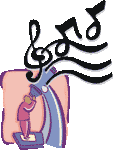Day 519, Germany, 1938
My wife’s grandfather, “Opi” Davidsohn (1)
Was sent to a detention camp, Welzheim,
A camp near Dachau, which was better known.
And you might ask, “What was her Opi’s crime?”
All Jewish men were subject to arrest.
Their crime was simple; they were Jewish men.
So Opi’s crime was just like all the rest
And lots of neighbors shrugged and said, “Amen.”
And then the Nazis granted them release.
With one clear message: “You’re not wanted here.
“How can our Aryan race live here in peace
“When Jews “infest” our Fatherland, so dear?”
“Infest” is something ants and roaches do,
Or termites, vermin like the rats and mice.
But someone with a brown skin or a Jew,
Should be regarded as if they were lice?
Trump tweeted that asylum seekers bring
An infestation of both drugs and crime:
A verse his loyal followers all sing.
Will, “Deutchland Ueber Alles.” come in time? (2)
The Nazi government: one massive crime.
Does our society begin to rhyme? (3)
- Opi is German for “grandpa.” Opa is “grandfather.” Opi Davidsohn with his wife and son, Ernst, who became Carol’s father, left Germany in 1939, just before the “final solution,” the change of detention camps to extermination camps, Vernichtungslagern.
- Deutchland Ueber Alles, is the German national anthem. It means “Germany Over Everything,” sort of like, “America First.” Originally, Das Lied der Deutchen, or “The Song of Germany,” was a poem written by Hoffman von Fallersleben in 1841 to fit a melody composed by Joseph Haydn in 1797 for a song celebrating the birthday of the current German emperor, Franz II. The Nazis really meant “Germany over everything,” when they sang it. After German reunification, the verse everyone sang was changed from the first verse to the third to be less militant.
- “History doesn’t repeat itself but it often rhymes,” attributed to Mark Twain. Scholars argue about the attribution but the truth of the phrase is born out in history.
